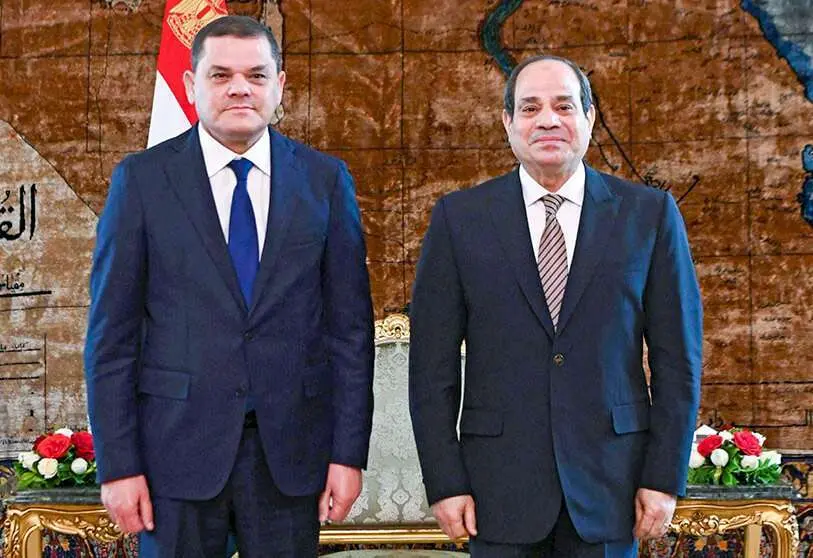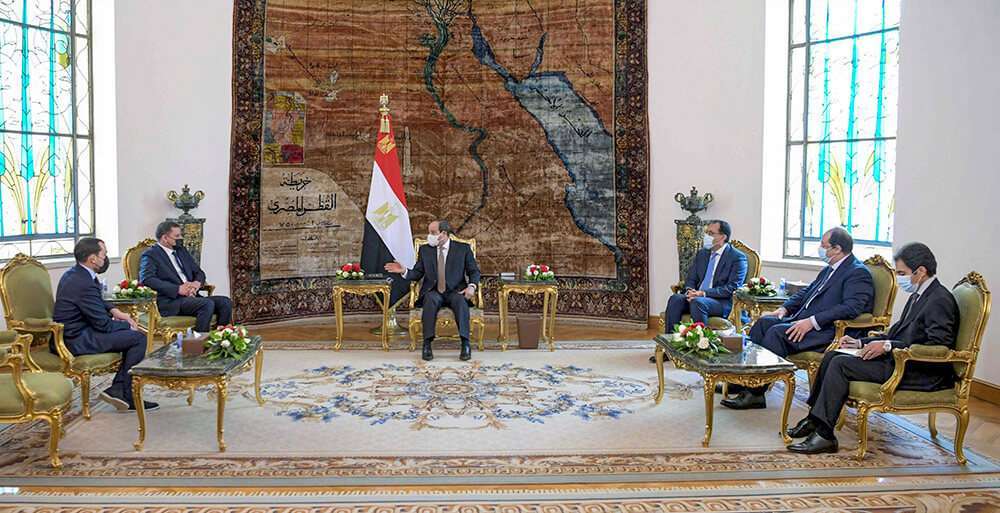Libyan prime minister travels to Cairo to strengthen relations with Egypt

Libya's newly elected Prime Minister Abdul Hamid Dbeibah travelled to Cairo on Thursday to meet with Egyptian President Abdel Fattah al-Sisi to discuss future policies between the two countries. Dbeibah expressed his gratitude to the neighbouring country for its strong support against extremist movements and terrorist organisations during the troubled times in the country he leads.
The official communiqué issued by the Egyptian Presidency Office speaks of the firm intention of the two governments to establish a comprehensive partnership. For his part, al-Sisi congratulated the prime minister for having won the confidence of the Libyan Political Dialogue Forum (LDPF) held on 5 February in the Swiss city of Geneva. This, he says, is a great boost for his country, thanks to the important cohesion that a new united and renewed government will provide, in which the sole objective is to improve the situation of the Libyan people.

The Egyptian president also made reference to his country's eagerness to continue supporting Libya and to go one step further. Strengthening relations between the two states is at the top of his agenda in order to lay the foundations for peace and stability. But it was not all to be words of thanks. Abdel Fattah al-Sisi stressed that it must be the country of Dbeibah that begins to rebuild its country little by little, starting by mobilising its population to secure its territory and re-establish the basic pillars of its nation. To this end, however, it has made available all the help Egypt can offer with its experience, so that it can get down to work as soon as possible on construction and development issues.

On the eve of the meeting, the two leaders held a telephone conversation in which they anticipated everything they were going to discuss once the Libyan prime minister set foot on Egyptian soil. From the outset, the focus was on preserving the historic relations between the two countries and improving government-to-government cooperation in as many areas as possible. Egyptian Foreign Minister Sameh Shoukry also wanted to make it clear at all times that his country's rapprochement with Libya has no interest beyond strengthening the ties that have always united them and, it is hoped, will continue to unite them for a long time to come.
It should be recalled that the longevity of the government headed by Abdul Hamid Dbeibah is minimal. More than five months of United Nations (UN) negotiations were required to form the LFPF in which 73 representatives from Libya's three regions were present. The Libyan executive consists of Dbeibah as prime minister, accompanied by Abdullah Hussein al-Lafi and Mossa al-Koni, while Mohammad Younes Menfi chairs the Presidency Council.

One of the main objectives of the new Libyan government is focused on the withdrawal of Russian and Turkish troops. Ankara does not take a dim view of facilitating the requests of a prime minister who, even before he came to power, had a very close relationship with the country presided over by Recep Tayyip Erdogan: "Turkey can play a fundamental role in helping the Libyans achieve their objectives", said Dbeibah. Moreover, his home city of Misrata is one of the most important points in Libya for the Islamist militias, which are a key support for the Government of National Accord (GNA).








